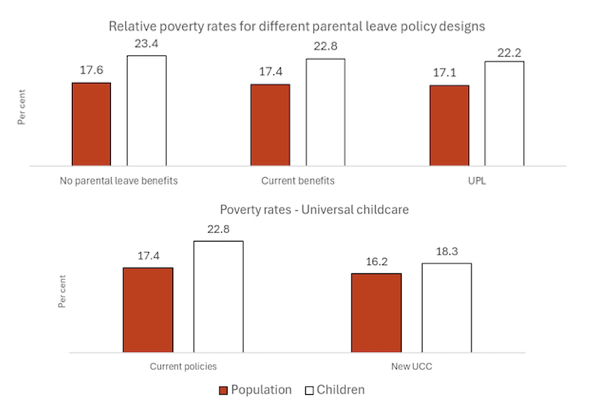 Credit: UNICEF Luxembourg
Credit: UNICEF Luxembourg
On Thursday 20 November 2025, to mark World Children’s Day UNICEF Luxembourg published its new report “Children Today, Future Tomorrow: Investing to Break the Cycle of Poverty”, which revealed that one in four children in Luxembourg remains at risk of poverty or social exclusion.
According to the report, new analysis has shown that Luxembourg continues to face persistently high levels of child poverty despite substantial public expenditure on family support. In 2023, 26.1% of children under eighteen in Luxembourg were at risk of poverty or social exclusion, placing the country seventh highest in the European Union. According to STATEC, the national child poverty rate reached 23.9% in the same year.
The report argues that Luxembourg could reduce child poverty to 10.7% in the short to medium term by adopting a combined reform of child benefits, childcare provision and parental leave. According to UNICEF Luxembourg, this reform would require an estimated additional 1.77% of GDP.
The researchers emphasised the need to ensure greater effectiveness in family policy spending. They noted that a more progressive universalist approach, in which universal benefits are combined with targeted measures, could strengthen redistribution and help reduce deprivation. They also highlighted the importance of addressing living costs and income inequality, which remain high for families with children.
The report recommends that the Government improve take-up of existing benefits, such as parental leave, cost-of-living support, and housing subsidies. Many eligible families fail to apply for support due to complex procedures, inefficient targeting, or lack of information. The authors further stress that the absence of comprehensive data on benefit uptake in Luxembourg continues to hinder policy evaluation and evidence-based reform.
The report sets out several short-term policy proposals:
• reform universal child benefits by adopting a more targeted structure that considers children’s ages and household wealth;
• extend and simplify parental leave by offering twelve months of post-natal paid leave per child, removing restrictive employment and social security requirements, and raising the eligible age for parental leave from six to twelve years. The authors also call for an increase in the financial cap on parental leave payments, which currently discourages higher earners and single parents from taking leave;
• improve childcare affordability and access by providing 40 hours per week of free childcare for children aged between one and four years, investing in quality through training and regulation, and ensuring adequate nationwide childcare capacity;
• increase awareness and accessibility by improving multilingual communication and actively informing high-risk families, including single-parent households and newly arrived families;
• simplify application processes across all benefit schemes and expand automation to reduce administrative barriers;
• strengthen monitoring and evaluation by establishing robust data systems, including indicators on access and uptake, supported by regular analytical tools such as microsimulation modelling;
• promote income equality by expanding progressive taxation and long-term social mobility programmes, ensuring tax brackets adapt automatically to indexed wage increases.
Moreover, the report concluded that decisive action is essential to reduce deprivation among children in Luxembourg. UNICEF Luxembourg stressed that delays in addressing child poverty will increase economic and social costs in the future and urges policymakers to implement comprehensive reforms without delay.








